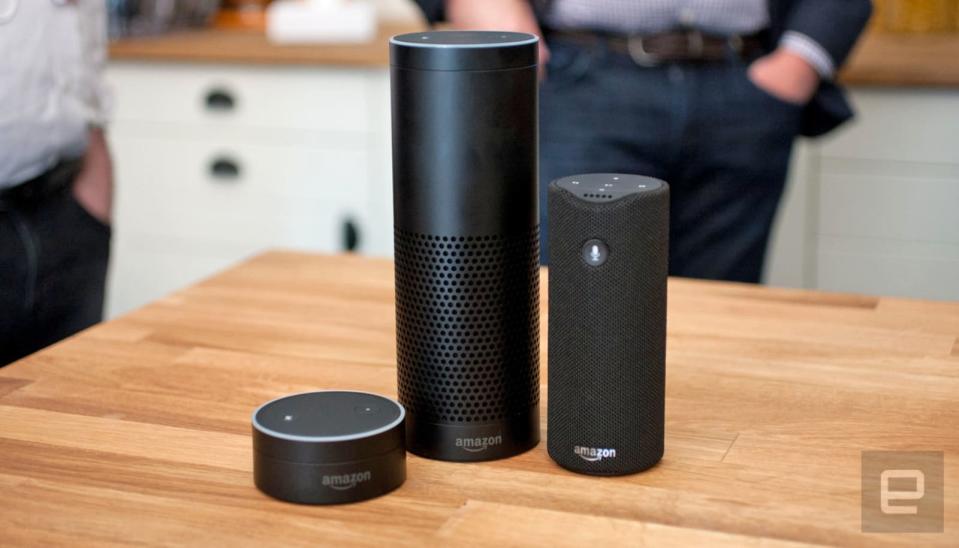Amazon refuses to hand over Alexa info for murder investigation
The company says Alexa's responses are protected by the First Amendment.

Amazon continues to resist law enforcement's demands to hand over the audio recordings for an Echo involved in an Arkansas murder investigation. The tech titan has filed a motion to throw out a search warrant from prosecutors, arguing that both the users' voice commands and Alexa's replies are protected by the First Amendment. As such, the demand must be subjected to a "heightened standard" -- prosecutors must prove that they can't find the information elsewhere and must demonstrate a compelling need for the recordings.
Amazon says prosecutors haven't established a compelling need for the Alexa data, thus far. But if the warrant is upheld, the company wants the court to review the data before handing it over to prosecutors to make sure it's actually relevant to the case.
The investigation in question looks into the suspicious death of former Georgia police officer Victor Collins in 2015. He was found floating face-up in a hot tub in the home of his friend, James Andrew Bates, who called the cops to report that he found the body. Bates claimed the death was an accidental drowning, but Collins' eyes and lips were swollen, and there were drops of blood around the tub. He's now the investigation's prime suspect.
An Echo speaker was also streaming music near the tub. Authorities believe there's a possibility that Alexa was activated with a "wake word" either intentionally or accidentally around the time of Collins' death. They believe a recording could shed light on what happened that night. It could, for instance, reveal if Bates was awake when he claimed he was asleep.
Amazon explained in the motion that its purpose isn't to obstruct any lawful investigation. In fact, it already gave authorities access to Bates' purchase history and user information. However, it "seeks to protect the privacy rights of its customers when the government is seeking their data... especially when that data may include expressive content protected by the First Amendment."
The company pointed out in the court documents that authorities would have access to the recordings if Bates installed the Alexa app on his Nexus phone. However, his device was encrypted at the chipset level. It's possible that the only way authorities can access the recordings without Amazon's help is if they mimic what the feds did to deal with the San Bernardino shooter's iPhone. If you'll recall, Apple refused to unlock the phone for the FBI, so the agency sought help from another company.
But will the court side actually with Amazon and quash the search warrant? University of Arizona College of Law professor Toni Massaro told Forbes that it could go either way:
"...even if they are speech, they may not always be protected from government regulation. That something may be covered by the First Amendment does not mean it is protected."
